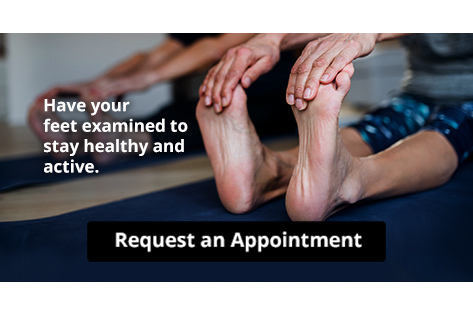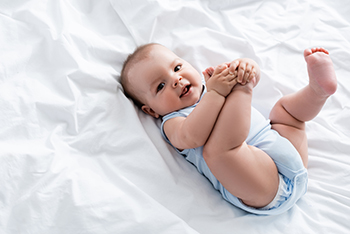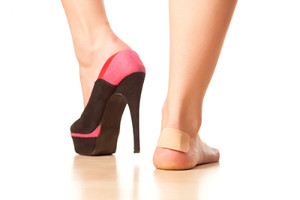The human papillomavirus (HPV) is responsible for many kinds of conditions from simple warts to cancer. In plantar warts, the virus invades the sole of the feet by entering the body through tiny cracks or cuts in the skin and causing circular warts with the appearance of callused skin to form. Plantar warts can grow individually, or cluster in what is called a mosaic. Each wart usually has a tiny black dot in the center, which is actually dried blood in the minuscule capillary that feeds the wart with blood. Plantar warts can be very painful due to pressure placed on them during walking and running and can multiply or get larger without treatment. Because plantar warts are very hearty and home treatments are often ineffective or risky (especially for people with diabetes or neuropathy), professional treatment from a podiatrist is suggested.
Plantar warts can be very uncomfortable. If you need your feet checked, contact one of our podiatrists from Associates in Podiatry. Our doctors will assist you with all of your foot and ankle needs.
About Plantar Warts
Plantar warts are the result of HPV, or human papillomavirus, getting into open wounds on the feet. They are mostly found on the heels or balls of the feet.
While plantar warts are generally harmless, those experiencing excessive pain or those suffering from diabetes or a compromised immune system require immediate medical care. Plantar warts are easily diagnosed, usually through scraping off a bit of rough skin or by getting a biopsy.
Symptoms
- Lesions on the bottom of your feet, usually rough and grainy
- Hard or thick callused spots
- Wart seeds, which are small clotted blood vessels that look like little black spots
- Pain, discomfort, or tenderness of your feet when walking or standing
Treatment
- Freezing
- Electric tool removal
- Laser Treatment
- Topical Creams (prescription only)
- Over-the-counter medications
To help prevent developing plantar warts, avoid walking barefoot over abrasive surfaces that can cause cuts or wounds for HPV to get into. Avoiding direct contact with other warts, as well as not picking or rubbing existing warts, can help prevent the further spread of plantar warts. However, if you think you have developed plantar warts, speak to your podiatrist. He or she can diagnose the warts on your feet and recommend the appropriate treatment options.
If you have any questions please feel free to contact our offices located in Pittsburgh-South Hills, and Pittsburgh-Bellevue, PA . We offer the newest diagnostic and treatment technologies for all your foot and ankle needs.





